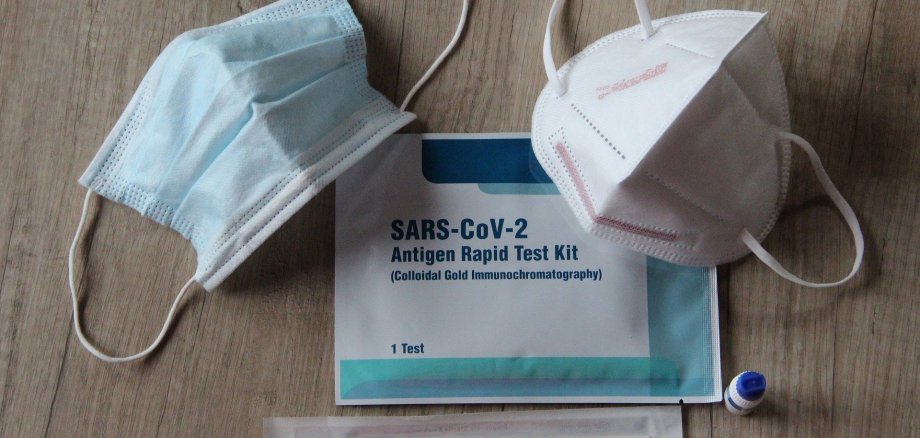Free citizenship tests: requirements for test centres high
In order to contain the Corona pandemic, everyone has been allowed to be tested for the Corona virus free of charge at least once a week since March. Due to the regulations of the Federal Emergency Brake, many people also need negative proof of testing - for example, for a visit to the hair salon, chiropody or for shopping with an appointment. However, testing sites must meet specific requirements.
Since the testing ordinance has made regular free tests possible for citizens, the offer in Waldeck-Frankenberg has also grown steadily, with an upward trend. Nevertheless, the demand is still high - especially since a negative test has become an entry criterion in many areas. The district of Waldeck-Frankenberg, as the responsible body for the public health service, is authorised to commission providers as official test centres. Only then do they have the possibility to issue valid test certificates to citizens and ultimately also to bill their services via the Association of Statutory Health Insurance Physicians.
Since dentists, medical practices, medical laboratories, pharmacies and rescue and aid organisations are predestined and qualified to be official testing centres due to their medical orientation, the district has issued a general decree in this regard, which basically mandates these facilities to conduct and certify free citizen tests - if the facilities are interested in becoming an official testing centre.
Requirements for test sites are high
For all other non-medical providers, basically anyone can be appointed as an official testing centre to also offer citizenship tests. The requirements for non-medical facilities are correspondingly high: the hygienic framework conditions must be strictly adhered to as well as the qualification of the staff and the provision of suitable premises. "If all criteria are met, we issue a commission for non-medical providers in individual cases so that they are allowed to open as an official testing centre," explains First District Commissioner and Head of Health Karl-Friedrich Frese. "These individual case assessments of non-medical interested parties are evaluated very carefully, which can sometimes take a little time. After all, this is about the infection and health protection of the people in the district. Providers have a lot of responsibility here." He therefore asks for understanding that not all applications from non-medical interested parties received by the district have been reviewed yet.
Extensive testing
Non-medical providers who wish to become an official testing centre can send an informal application by e-mail to amtsarzt@lkwafkb.de. The application must contain general information about the planned testing centre - such as the operator's name and address. This must contain general information on the planned testing centre - such as the operator, name, designation and address of the planned testing centre and information on registration options for citizens. Furthermore, a certificate must be submitted for each person who is to perform smear tests there, stating that they have been instructed by a licensed physician. In addition, the layout of the premises must be described and documented pictorially. For example, separate entrances and exits and sufficient ventilation of the rooms are required and all surfaces must be disinfectable. Furthermore, it must be documented that appropriate protective clothing - such as "FFP" or KN95 masks, disposable gloves, face shields and protective goggles and disposable gowns or protective suits - are worn and proof must be provided of which disinfectant is used for hands and surfaces. If all the documents are submitted, the district will appoint an official testing centre after a positive examination.
According to the regulations of the federal emergency brake currently in force in Waldeck-Frankenberg, rapid tests carried out in official testing centres may be used as proof - for example for a visit to the hairdresser, chiropodist or for appointment shopping. However, there is also the possibility that, for example, hairdressing salons or chiropodists provide self-tests or customers bring their test kits with them - and the customers then carry out the rapid tests in the presence of the service provider on site. If the result is negative, access is allowed - but only in the place where the test was carried out. For any other area visited on the same day, if applicable, that requires a negative test, another test must be taken on site or an official citizen test must be presented.
